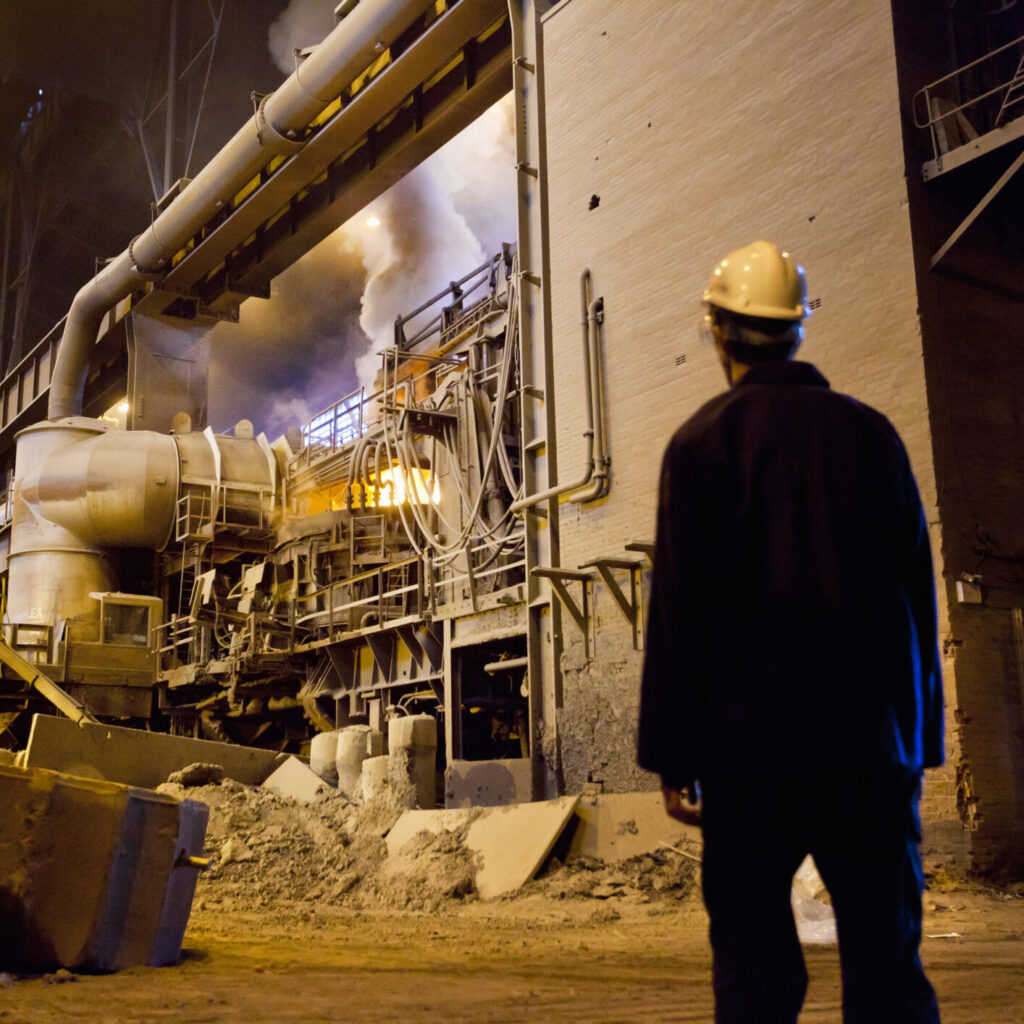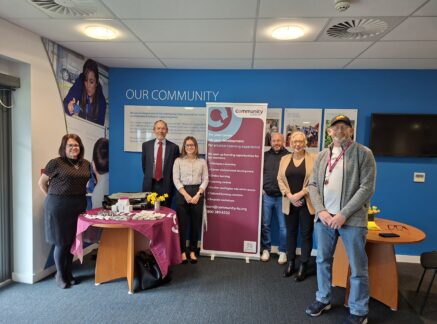In a guest blog, Tim Page, Founding Director at Industrial Paradigm outlines how Community’s latest steel report, ‘Steel Reforged: Strong Foundations for a Sustainable Economy’ sets the case for UK steel and addresses the challenges facing the sector.
Sunday saw the launch of ‘Steel Reforged: Strong Foundations for a Sustainable Economy’, a report from the Community trade union. I was delighted to have been invited by Community to produce this paper.
I am very grateful to the MPs representing steel communities, including Stephen Kinnock MP, Jessica Morden MP and Sir Nic Dakin MP, for giving their time and sharing their expertise. Thanks also to Gareth Stace of UK Steel, the employers’ organisation, Chris McDonald MP, a steel expert, and Elspeth Hathaway, formerly of the IndustriALL Europe trade union federation, for their insights and perspectives. And thank you to Karen Handley of Oxford Brookes Business School for her helpful feedback on an earlier draft.
Most of all, I am grateful to the steelworkers who I met while writing this report. Their knowledge and expertise was evident, as was the pride they take in their contribution to the British economy. I’d like to give a special shout out to Ian Linklater, Community Rep at British Steel, Scunthorpe, and his fabulous colleagues, who made me so welcome when I visited the steel plant in January.
‘Steel Reforged’ sets out the case for UK steel. It describes the challenges faced by the sector, but also the great opportunities if we get the right policy mix. Incredibly, there are some who argue that the UK doesn’t need to produce steel and we should rely on imports from countries such as China. The experts I met when producing this report gave that argument short shrift. Steel is a foundation industry. It is used in manufacturing, construction and transport. It is vital to our net zero future – we can make neither wind turbines nor electric cars without steel. Steel made in the UK can be found in Wembley Stadium, Hong Kong Airport and the Twin Towers Memorial in New York. In 2023, steel contributed £2.3bn to the UK economy. Steel is 100% recyclable and is widely recycled in practice. The UK produces steel to higher environmental standards than many of our competitors, so closing down our steel capacity would mean exporting our steel jobs while importing overseas-produced carbon.
And let’s be clear: steel produces very good, well-paid, unionised jobs – in parts of the country, such as South Wales and Yorkshire and the Humber, which have struggled in recent times. As a Community rep from the Tata Steel plant in Port Talbot told me: ‘Steel is in our DNA, it’s in our genetic make-up … it is our be-all, our end-all…’
The challenges faced by the UK steel industry are well-known. Our steel producers pay much more for electricity than their European counterparts, meaning that, in the words of a steel worker from Scunthorpe, ‘It’s like trying to make a product with both hands tied behind your back’. In an open, global market, we cannot have a crude ‘Buy British’ policy, but more could be done to include social value in supply chains, ensuring local economic and employment opportunities. We also need robust trade defence mechanisms to stop countries like China ‘dumping’ (i.e. selling below market price) its excess steel. Because as another steelworker said, China won’t be selling their steel so cheaply if we are reliant on them, without the capacity to make our own.
The opportunities, meanwhile, are enormous. In her Budget last October, the Chancellor, Rachel Reeves, described a range of infrastructure projects that will require high grade steel. The Government’s Industrial Strategy should provide a real boost to industries such as Advanced Manufacturing, which will need steel. Airport expansion will further drive demand, as will the ramping up of defence spending, a development that came after this report was written.
To take full advantage of the opportunities we need some investment. Specifically, we need a modern plate mill, to capitalize, for example, on the high value, high skill parts of wind technology. Top priority should surely be given to modernising our existing plate mill at Dalzell, in Motherwell, Scotland. We also need a Direct Reduced Iron facility if we are to smoothly transition to green steel. Those investments won’t come cheaply but, while ‘Steel Reforged’ doesn’t try to be prescriptive, the £2.5bn allocated to the green steel fund from the Government’s National Wealth Fund could be used to catalyse these projects, with the private sector contributing its share.
As the steel industry modernises, some jobs will disappear. This is a sad truth that ‘Steel Reforged’ doesn’t try to run away from. What is also needed, therefore, is a robust Just Transition policy, so that new opportunities are created for those steelworkers who lose their jobs, in their own communities. This report highlights best practice from Germany and Sweden as those countries have undergone industrial transformation.
‘Steel Reforged’ will be communicated to the Government as it develops is steel strategy. Community is represented on both the Steel Council and the Industrial Strategy Council and will be using these arguments in charting a positive path for the future of UK steel.
It was a pleasure to help them in this task.
Thank you. We have received your query
We have received your query and a member of our Service Centre Department will be in touch to discuss further with you.
Due to service demands it is not always possible for our advisors to reply to your query immediately. We aim to respond within 48 hours of receipt.
If your employer has invited you to a formal meeting (disciplinary, grievance or appeal) and you are seeking representation, if you have not already done so via this form, please provide us with all relevant supporting information including any notes/minutes from any investigation process and your email/letter of invitation, which should include full details of when and where the meeting is due to take place.
Please note that representation is not provided for investigation meetings.
If you have any further queries, please contact our Service Centre Department on 0800 389 6332 or at servicecentre@community-tu.org.
Not a member?
Let’s get to know each other.
"*" indicates required fields
"*" indicates required fields












